Explore the different literary styles found in the Bible and learn how each uniquely contributes to the overall story of Scripture. We can better understand what the Bible actually is by understanding how it was written.

How to Read the Bible

Episode 1
What Is the Bible?
Unpack the history and origins of this extraordinary collection of writings to look closer at what you'll find in your Bible today.
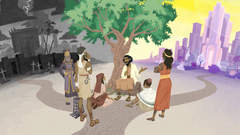
Episode 2
The Story of the Bible
The Bible is a collection of writings that tells one unified story about God's plan to partner with humanity to rule a united Heaven and Earth.

Episode 3
Literary Styles
Reading the Bible wisely requires that we learn about the ancient literary styles used by the biblical authors. But why did these writers express their ideas and claims through a variety of different types of literature? What was the purpose, and how can we understand them better?
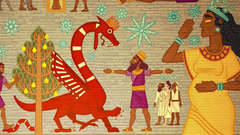
Episode 4
Ancient Jewish Meditation Literature
The Bible a multi-layered work, offering levels of insight as you re-read and meditate on the Bible. Explore the unique style of the Bible, which is meant to draw its readers into a lifelong journey of reading and meditation.
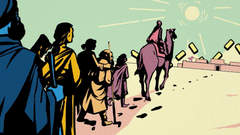
Episode 5
Plot
An important part of reading biblical narratives is learning how to understand the nature of how stories are arranged into a pattern of conflict and resolution. When we pick out verses and read them apart from the context of their overall plot, we can fail to interpret the intended meaning of the story.

Episode 6
Character
Most of us think of characters in the Bible as either sinners or saints, good or bad. At least that’s how Bible stories are presented to children. In this video, we’ll explore the ways biblical authors present characters as more complex and morally compromised than we usually imagine.

Episode 7
Setting
Every story takes place somewhere, and locations often have a special meaning evoked by past events in the same location. We call these locations settings, and biblical authors use settings to meet the reader’s expectations—and mess with them. When we pay attention to locations and time in biblical stories, we can unlock deeper layers of meaning.
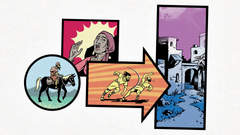
Episode 8
Design Patterns
Design patterns are one of the key ways the biblical authors have unified the storyline of the Bible. Individual stories across the Old and New Testaments have been coordinated through repeated words and parallel themes. These patterns highlight core themes of the biblical story and show how it all leads to Jesus.

Episode 9
Poetry
Did you know that a third of the Bible is ancient Israelite poetry? Poetry is a rich and artistic form of human communication, but it's also some of the most difficult to read. In this video, we’ll explore the unique characteristics of biblical poetry and discover its beauty and power.
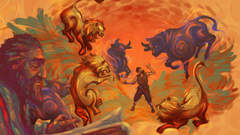
Episode 10
Poetic Metaphor
Understanding how metaphors are used in the Bible is an essential tool for reading biblical poetry. Anytime someone describes one thing to give meaning to something else, they are using metaphorical thinking. Metaphors are everywhere in the Bible and in our everyday speech. In this video, we’ll explore this crucial aspect of biblical language.
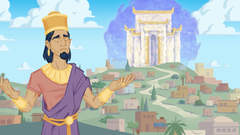
Episode 11
The Book of Psalms
The book of Psalms is the largest collection of poetry in the Bible. In this video, we’ll explore the design, shape, and main themes of this marvelous book, which was crafted to be read from beginning to end. The Psalms are an invitation to a literary temple, where you can meet with God and hear the entire biblical storyline retold in poetic form.
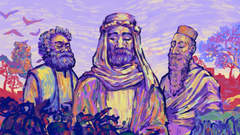
Episode 12
The Prophets
The books of the Old Testament prophets are packed with dense poetry and wild imagery. If you’ve tried to read them, odds are you were both intrigued and confused. In this video, we’ll learn how these prophetic books contribute to the storyline of the Bible and why it’s worth learning how to read them more attentively.
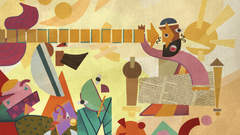
Episode 13
Biblical Law
Why are there are so many ancient biblical laws in the first books of the Bible? What are modern readers supposed to do with them, and why are some of them so odd? Let’s explore why the laws were given to ancient Israel and how they fit into the overall storyline of the Bible so that we may better understand these sections of Scripture.
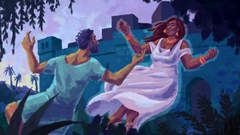
Episode 14
The Books of Solomon
The wisest king of Israel, King Solomon, is associated with three books of the Bible: Proverbs, Ecclesiastes, and the Song of Songs. Each book offers a unique perspective on how humans can rule with wisdom and the fear of the Lord. In this video, we briefly explore how the message of each book fits into the overall story of the Bible.
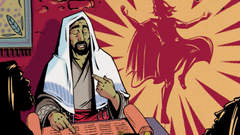
Episode 15
The Gospel
The New Testament contains four ancient biographies of Jesus of Nazareth, and altogether they are called “the Gospel.” Each one tells the story as an announcement of good news that the crucified and risen Jesus is the true ruler of the nations. In this video, we explore why these accounts were written and how you can read them with greater insight.
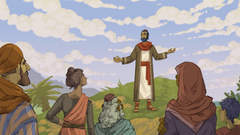
Episode 16
The Parables of Jesus
Jesus of Nazareth was a master storyteller, and many of his most well-known teachings were told as parables. But why did Jesus use parables to communicate his message so often? Why didn't he speak in plain language so that everyone could understand him? The answer may be surprising.
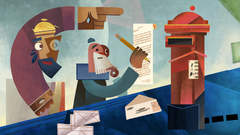
Episode 17
New Testament Letters: Historical Context
In the New Testament, there are 21 letters written by early Christian leaders to communities of Jesus' followers in the ancient Roman world. These letters are rich with theology and guidance for what it means to be a community of Jesus followers. But it can be easy to miss the meaning of these letters when we don't consider their context. In this video, we break down the historical context of the New Testament letters.
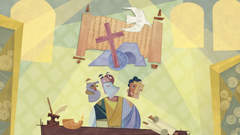
Episode 18
New Testament Letters: Literary Context
The New Testament includes 21 letters from early Christian leaders to Jesus’ followers in the ancient Roman world. While these letters offer rich theology and guidance to followers of Jesus today, understanding their historical and cultural context is essential to grasp their intended meaning.

Episode 19
Apocalyptic Literature
The Bible is filled with dreams and visions about human history coming to a climax, and they’re usually packed with intense imagery and strange symbols. In this video, we’ll explore the meaning of the word “apocalypse” in the Bible and learn some basic steps for reading this literature with more wisdom and insight.
